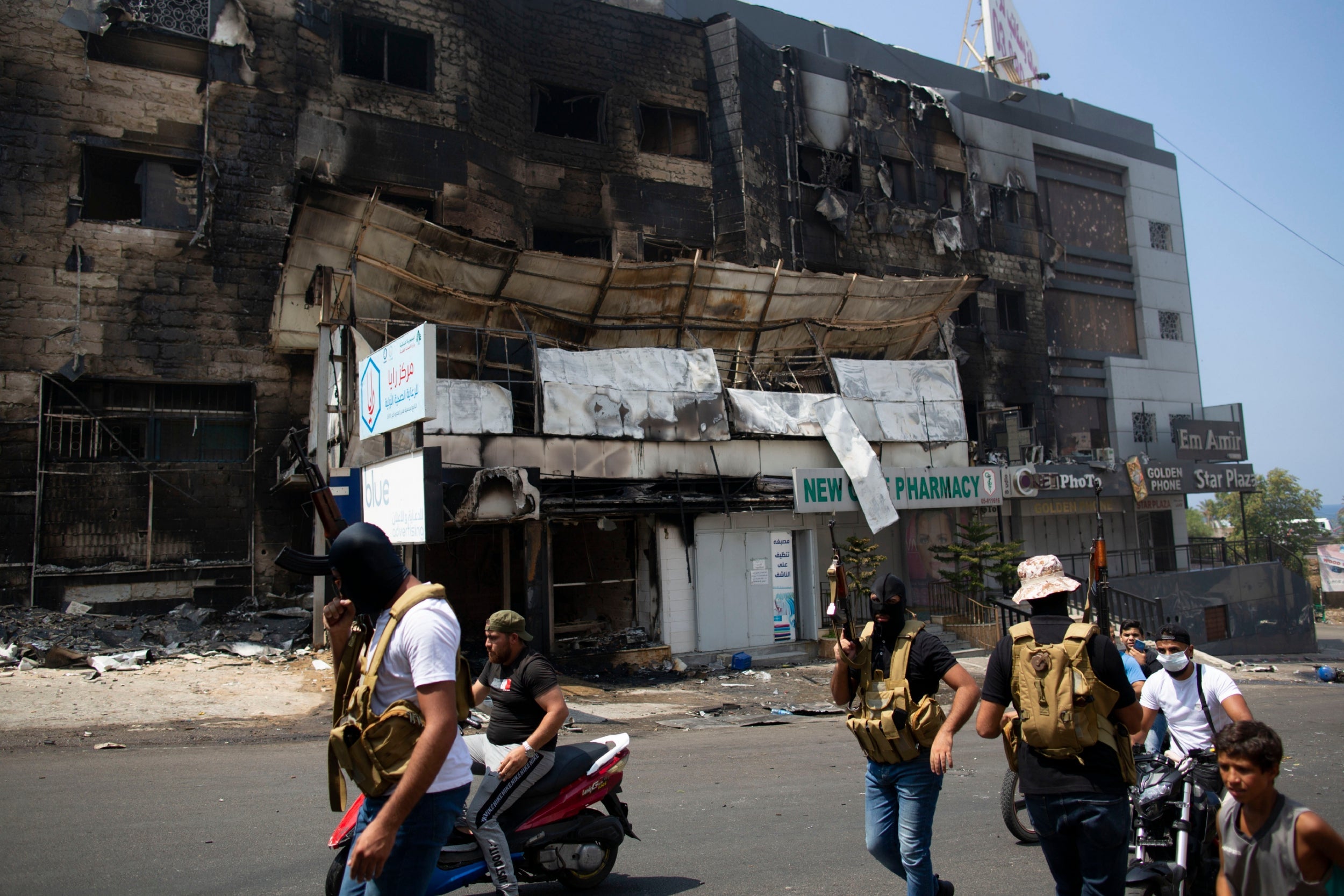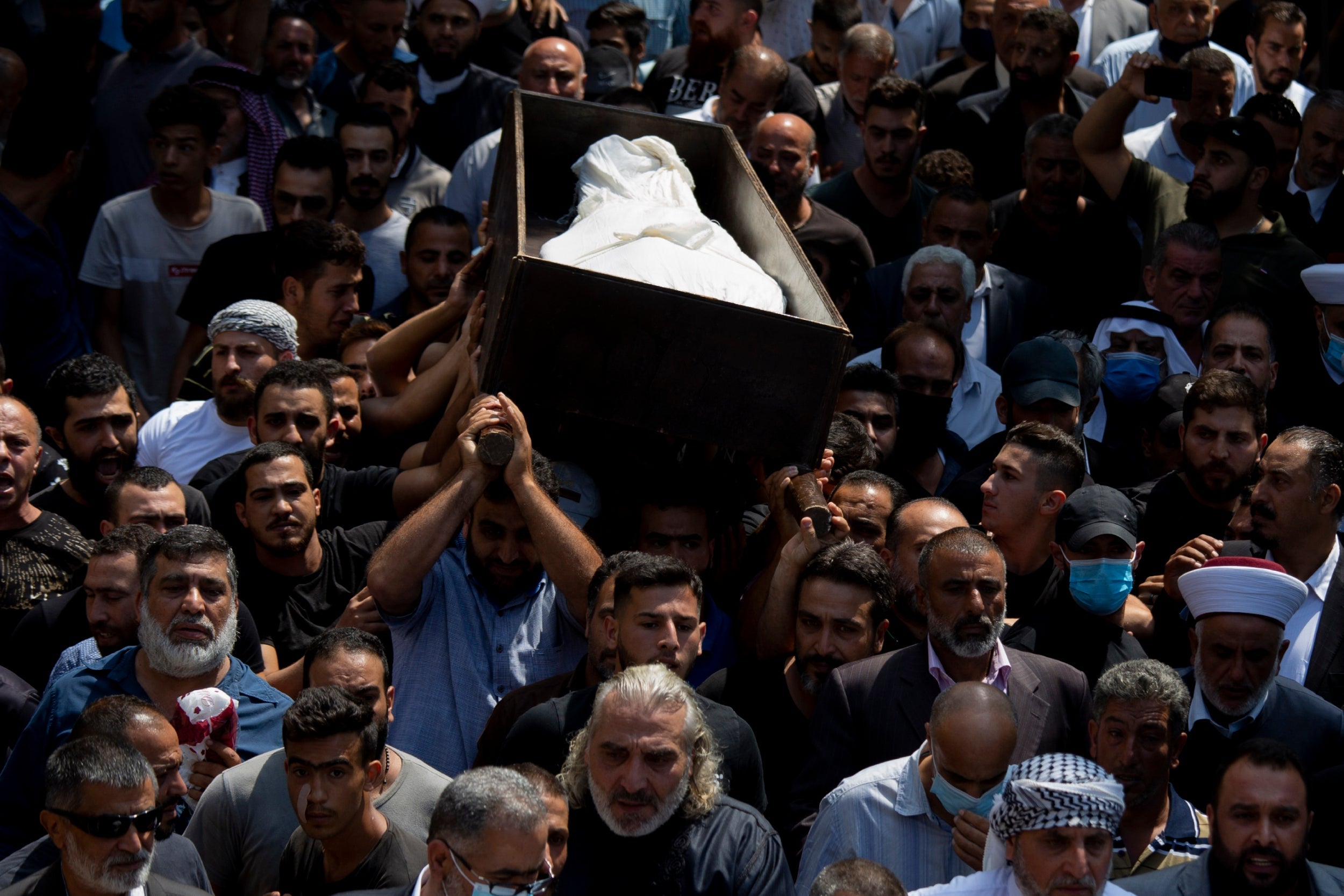Child killed in sectarian clashes south of Beirut amid fears of new conflict
UN coordinator for Lebanon warns ‘sectarian strife [is] a sure way to disaster’ after firefight south of Beirut

A 14-year-old boy was killed in a deadly battle between Sunni and Shia citizens south of Beirut, igniting fears of further violence in Lebanon – a country already blindsided by a financial crisis and this month’s devastating explosion.
Rocket-propelled grenades were fired while machine gunfire rang through the streets during the clashes in Khaldeh, a mixed coastal town just south of the capital.
The teenager, Hassan Zaher Ghosn, belonged to a Sunni Arab tribe. It accused members of the powerful, Iran-backed Shia militant group Hezbollah of opening fire on Thursday night. Hezbollah vehemently denied having anything to do with the incident.
A Syrian man was also reportedly killed in the clashes.
The Lebanese army, now heavily deployed in the area to quell the unrest, said a row spiralled out of control over a poster put up by Shias to commemorate Ashura, a holy day marking the 7th-century martyrdom of Imam Hussein, the grandson of the Prophet Muhammad.

The incident took place in an area where Shiites and Sunnis live.
Jan Kubis, the United Nations special coordinator for Lebanon, warned of “disaster” if violence continues.
“Gravely concerned about the events in Khaldeh area,” he said on Twitter. “The last thing the tormented Lebanon needs is is sectarian strife – a sure way to disaster.”
A tense funeral for the teenager was held on Friday, where mourners chanted “there is no God, but God and Hezbollah is the enemy of God”, according to video and local news reports. The body was carried on a stretcher and masked tribesmen fired machine guns in the air.
In a statement on Wednesday, the tribe warned they “do not compromise with the blood of children”, sparking fears of further violence.
The country is already grappling with an unprecedented financial crisis and still reeling from the massive 4 August port explosion which killed 180 people, injured 6,000 and destroyed swathes of the capital.
The government resigned in the wake of the blast, which left as many as 300,000 people homeless.
Consultations between members of parliament to choose a new prime minister will begin on Monday, as French President Emmanuel Macron is due to land in Lebanon to discuss the reconstruction of the capital and international support.
On Monday, French foreign minister Jean-Yves Le Drian said Lebanon was in such a deep political and economic crisis that the country risks collapsing altogether.
Sectarian tensions, meanwhile, have soared in recent months.
The rift between the Lebanese Sunni and Shia population widened after the 2005 assassination of Lebanese former prime minister Rafiq al-Hariri, a prominent Sunni politician who in the months preceding his killing was a supporter of reducing the influence of Syria and Hezbollah in Lebanon.
Problems deepened two weeks ago when an UN-backed tribunal convicted Hezbollah member Salim Ayyash in Hariri’s killing. The three judges said Ayyash was guilty of five charges including conspiracy to commit a terrorist act and intentional homicide by using explosive materials. Hezbollah denies any role in Hariri’s murder.
Ali Al-Shahine, a spokesperson for the Arab Khaldeh tribes, accused Hezbollah supporters of trying to put up the poster of Salim Ayyash that sparked the fighting.
But this was denied by a military source and Hezbollah, whose spokesperson called it a “reckless” accusation.
Lebanese politicians across the divides scrambled to try to contain the tensions.
The Future Movement, led by Hariri’s son, Saad, urged the Arab Khaldeh tribes to heed his call for self-restraint, saying the incident was the result of “unregulated weapons and futile provocations”.
It is the second case of deadly shootings in a week.
Three men were shot dead in the village of Kaftoun in northern Lebanon on Saturday. A Syrian man has been arrested and two Lebanese suspects are on the run, a security source said.
Join our commenting forum
Join thought-provoking conversations, follow other Independent readers and see their replies
Comments